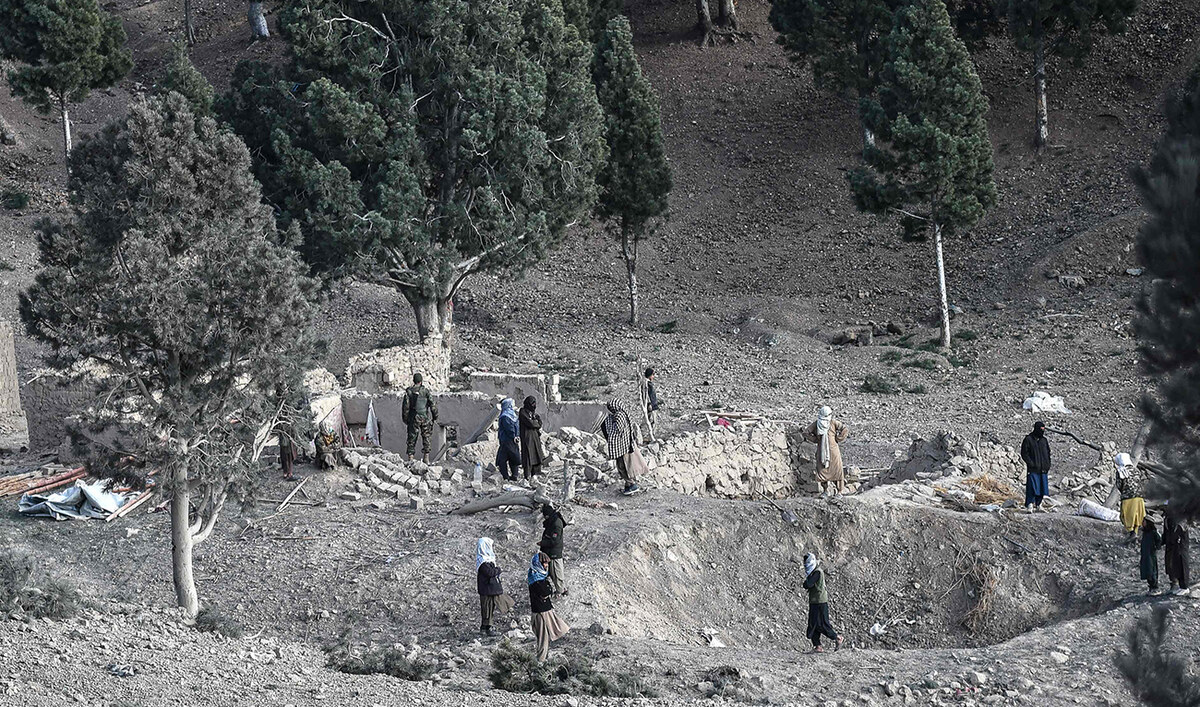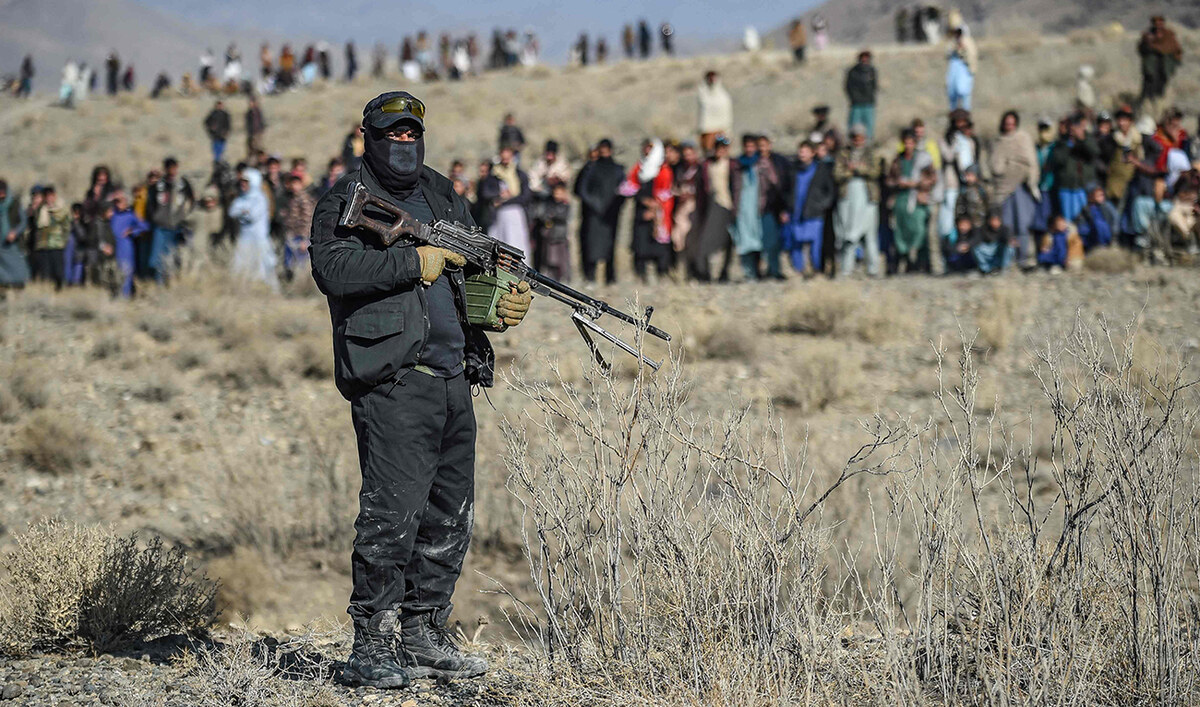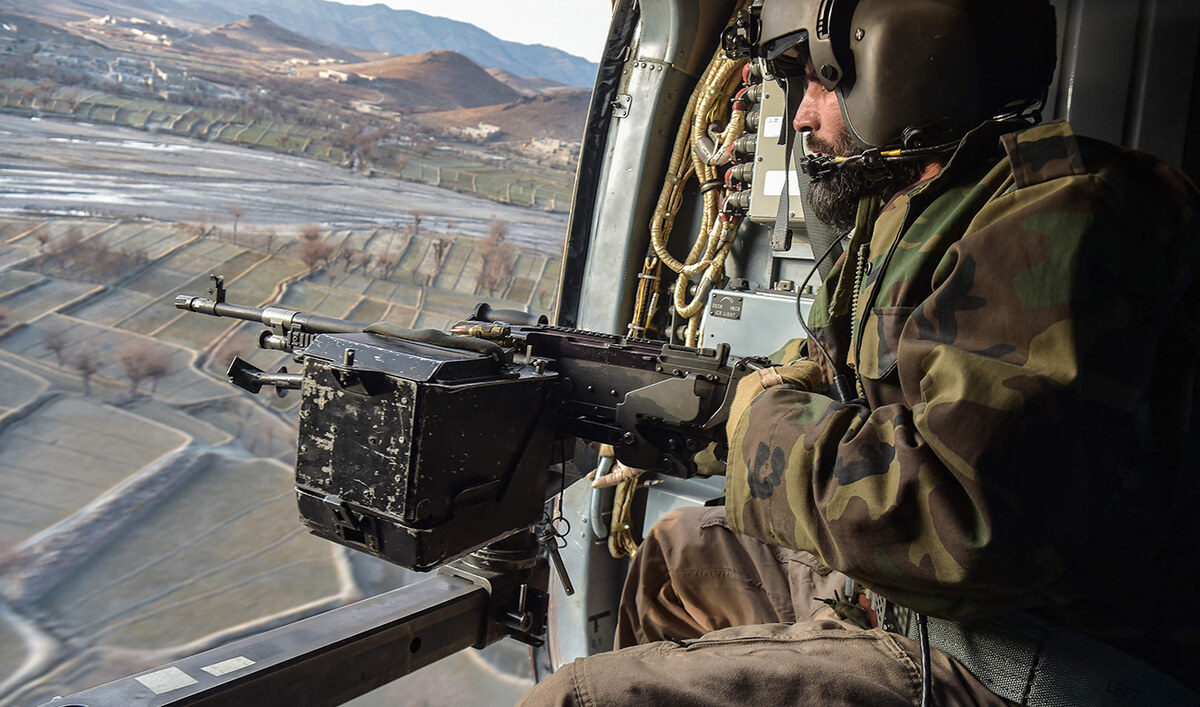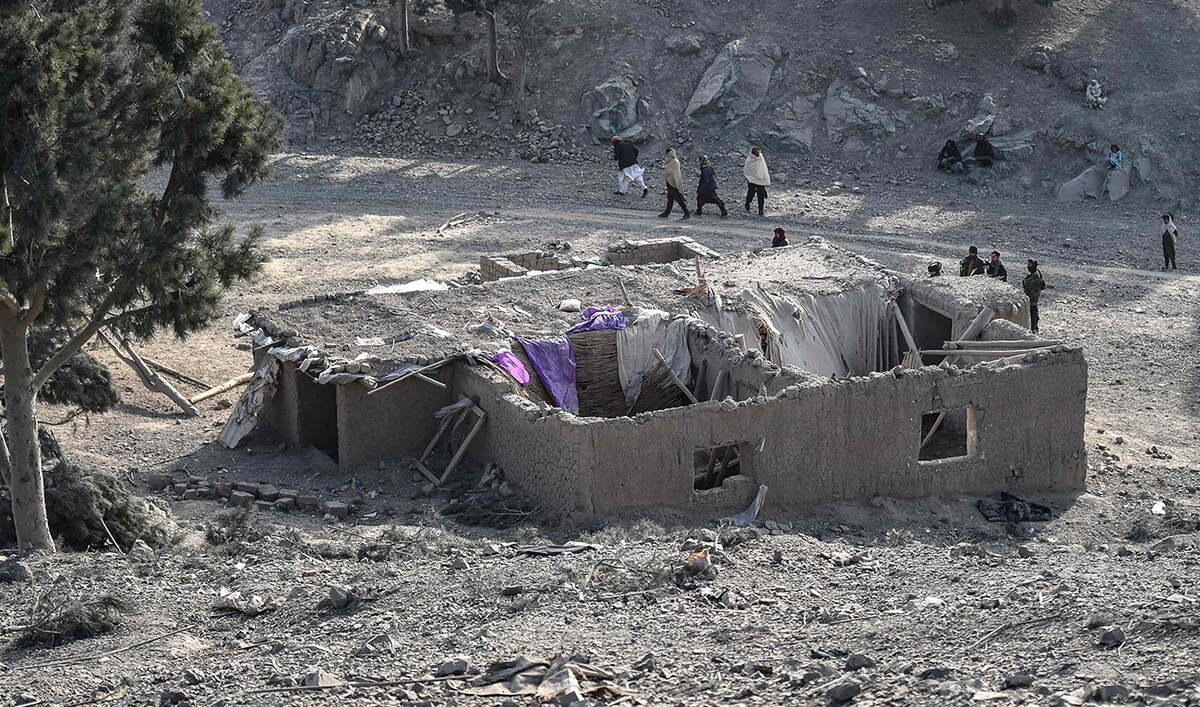ISLAMABAD: Pakistan on Monday confirmed airstrikes against suspected militants in border regions inside Afghanistan, hours after the Afghan Taliban said Islamabad had struck civilian targets, killing five women and three children.
Islamabad’s airstrikes, the sharpest escalation in already deteriorating ties between the neighbors, came two days after a suicide bomber rammed his explosive-laden truck into a military post in northwest Pakistan, killing seven soldiers. The Pakistan army, defense minister and president vowed retaliation in separate statements.
Militant attacks have risen sharply in Pakistan in recent months, many of them claimed by the Pakistani Taliban. The Pakistan government and security officials say most assaults are launched from neighboring Afghanistan, an accusation that has damaged the relationship between Pakistan and the ruling Afghan Taliban, who deny they have allowed Afghan territory to be used by militants.
After a long day of silence following the Afghan government’s confirmation of the strikes, the Pakistan foreign ministry said suspected militant targets in “border regions inside Afghanistan” had been targeted in an operation.
“The target of today’s operation was the terrorists belonging to Hafiz Gul Bahadur Group, which along with Tehrik-i-Taliban Pakistan (TTP), is responsible for multiple terrorist attacks inside Pakistan, resulting in deaths of hundreds of civilians and law enforcement officials,” the Pakistani foreign ministry said.
“The latest attack took place on 16 March 2024 at a security post in Mir Ali in North Waziristan and claimed the lives of seven Pakistani soldiers.”
The foreign office said the Afghan interim government had been conveyed Islamabad’s concerns over the past two years regarding the presence of “terror outfits” within its territory, adding that some elements within the Afghan government were “actively patronizing the TTP and using them as a proxy against Pakistan.” The statement did not specify any particular figures in the Afghan Taliban as being responsible.
“Such an approach against a brotherly country, which stood with the people of Afghanistan through thick and thin, manifests shortsightedness. It ignores the support extended by Pakistan to the people of Afghanistan over the last several decades. We urge these elements in power to rethink the policy of siding with Khwarij terrorists shedding the blood of innocent Pakistanis and to make a clear choice,” the Pakistani foreign ministry said.

This handout photograph taken on March 17, 2024 and released by the Pakistan's Inter Service Public Relation (ISPR) shows Pakistan's Army Chief General Syed Asim Munir (C, left) and Chairman Joint Chiefs of Staff Committee General Sahir Shamshad Mirza (C, right) carrying the coffin of Lieutenant Colonel Syed Kashif Ali, who was killed along with other soldiers in a militant attack in north Waziristan district, during the funeral ceremony at Chaklala garrison in Rawalpindi. (Photo courtesy: Military's media wing)
The statement added that Pakistan realized the challenge Afghan authorities faced in combating the threat posed by TTP and that Islamabad continue to work toward finding joint solutions in countering terrorism and preventing terror organizations from sabotaging bilateral relations with Afghanistan.
In a separate statement, the Pakistan army said the recent wave of militancy in the country had the “full support and assistance” of Afghanistan.
“It is clear to all that the recent wave of terrorism in Pakistan has the full support and assistance of Afghanistan,” the army’s media wing said in a statement shared by state-run Pakistan Television on X.
“With the help of the Afghan Taliban and the supply of modern weapons, there has been an increase in the incidents of terrorism in Pakistan.”
The army accused the Afghan government of arming militants and providing safe havens as well as itself being involved in attacks in Pakistan and listed several high-profile attacks in Pakistan recently in which Afghanistan was involved, including an attack on two military check posts in Chitral last September, an attack on an air base in November and an attack on a mosque inside a police compound in Peshawar in January 2023 in which almost 100 people were killed.
Pakistan’s new government led by Prime Minister Shehbaz Sharif is faced with dealing with fraying ties with three of Pakistan’s four neighbors, India, Iran and Afghanistan.
“BAD CONSEQUENCES”
Earlier, a spokesperson for the Islamic Emirate of Afghanistan, Zabihullah Mujahid, said Pakistani planes had struck civilian targets in the Khost and Paktika provinces early on Monday morning.
“Last night at around 3 o’clock in the Barmal district of Paktika province and in Afghan Dubai area of Sepera district of Khost province, Pakistani planes bombed the houses of civilians,” Mujahid wrote on X.
“As a result, 6 people including 3 women and 3 children were martyred and a house destroyed in Paktika, as well as, two women were martyred due to the collapse of a house in Khost province.”
The Afghan government condemned the attacks and called them a “reckless” violation of Afghanistan’s sovereignty.
“The people of Pakistan and the new government should stop some army generals from continuing their wrong policies … and spoiling the relationship between the two neighboring Muslim nations,” the statement added.
“Pakistan should not blame Afghanistan for the lack of control, incompetence and problems in its own territory.”
The spokesman warned that the air strikes could have “bad consequences which will be out of Pakistan’s control.”
In a separate statement on social media platform X, Afghanistan’s defense ministry said its border forces had responded to Pakistan’s airstrikes.
“In response to this aggression, the border forces of the Islamic Emirate of Afghanistan targeted Pakistan’s military centers along the fictitious line with heavy weapons,” the statement said.
“The country’s defense and security forces are ready to respond to any aggressive actions and will defend their territorial integrity in any situation.”
Saturday’s attack on the Pakistan military post was claimed by a newly formed militant group, Jaish-e-Fursan-e-Muhammad. However, Pakistani security officials believe the group mainly comprises members of the outlawed Tehreek-e-Taliban Pakistan or TTP, which often targets Pakistani soldiers and police from safe havens in Afghanistan.
The Pakistani Taliban or TTP are a separate group but are allies of the Afghanistan Taliban, who seized power in Afghanistan in 2021 as the US and NATO troops were in the final stages of their pullout. The Taliban takeover in Afghanistan has emboldened TTP, Pakistan says, whose top leaders and fighters are hiding in Afghanistan.
“Terrorism is being conducted mostly from Afghanistan against us,” Pakistani defense minister Khawaja Asif told reporters in Pakistan’s eastern city of Sialkot on Sunday, saying militants were operating from sanctuaries in Afghanistan.
“We have also raised this issue with Afghanistan.”
In a separate statement on Monday, the Pakistan army’s media wing said security forces had conducted an intelligence-based operation in the restive North Waziristan district on Sunday night in which eight “terrorists,” including a high-value commander Sehra Janan, were killed:
“He was involved in orchestrating the terrorist attack on security forces’ post in Mir Ali on 16 March and was highly wanted by the law enforcement agencies.”




















